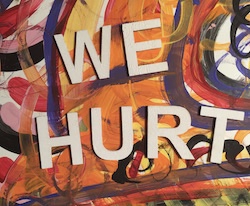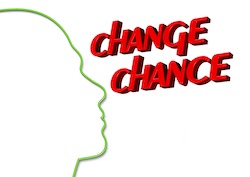
How to Talk About Your Mental Health with Your Employer
I hear from more than one client lately that they find it very difficult to talk about their mental health at work. I read the following:

Break the loop of procrastination & perfectionisme
My client knows that she irritates others with her procratination. She wants an insight in this habit. We analyzed to see if her perfectionism created a loop. Because she has a fear of being unable to complete a task perfectly, she puts it off as long as possible. Her assumptions and convictions:

Reflection time for a career change?
I hear from many new clients that the pandemic made them think about their next step.
Working every day online, made it so clear to some of them, that they were bored with their job and that working in the office had in the last years distracted them from realizing this:
“The colleagues I work with are really fun.”
“My boss really appreciates what I am doing”
“I was busy with pleasing others and realize now that I was not developing myself anymore.”
“I have online been listening more critical to my manager and realized that he drains my energy”
If you feel this also this it is the time to prepare yourself for the job market prepare the following:

Work-Life Balance in de advocatuur?
“Jonge advocaat wil leven naast werk” las ik in het FD van 4 mei jl. Voor mij geen nieuws. Ik coach veel jonge en minder jonge advocaten die vragen hebben over work-life balance, omgaan met autoriteit en twijfels hebben of de werkcultuur en de branche wel bij ze past. We maken een analyse waar de twijfels en irritaties in zitten. We koppelen dit aan hun persoonlijke effectiviteit. Wat heb je nodig? Waar ligt je ontwikkeling? En veelal is de keuze dan al gemaakt: Stay or Go?
Twee cliënten begonnen een maatschap. De meeste cliënten blijven en vinden een vorm die hen past. Een aantal ging het bedrijfsleven in.
Tevens ben ik het helemaal eens met het artikel dat er geluisterd moet worden naar de nieuwe generaties en hun behoeftes en dat, voor hen, geld verdienen een minder grote drijfveer is.

Self-doubt after career break? Reframe!
My client was a Stay-at-Home mom for 7 years. She doubted if she could go back into the job market, working at the same level as she did when she left it. Her doubts were mostly based on assumptions and not based on reality checks.

Onrust in het team? Virtuele heisessie?
Deze week sprak ik met een manager over hoe lastig het is, vanwege thuiswerken, om onrust in haar team weg te nemen. Verbaal en non-verbale signalen over onvrede moet je toch ook oppakken. Maar hoe? We brainstormden over een virtuele heisessie en dit was onze uitkomst:

Why feedback matters and how to receive it.
During an online training last week I heard Young Professionals tell me over and over how difficult it is for them to give and to receive feedback. Research shows that not getting feedback is very often why people leave the job. They say the following:

Leaders, align your team through inspriring questions!
As a coach, I believe, it is through questions that we develop. Especially leaders, when you find yourselves in the midst of crisis and uncertainty, you should ask powerful and inspiring questions. Eventhough you might think that people look to you for answers!
Asking questions well can put you on the path to solving intractable problems and will also help you connect with your team and, counterintuitively, to earn their trust. Those questions should be big in scope: What new opportunities have emerged that we don’t want to miss? How might we use new technologies to change our business model? And you should involve others in answering those questions —employees, stakeholders, and even customers. Doing so can not only help you generate better answers, it can also help you to change your organization’s cult. The kind of questions leaders need to ask are those that invite people to come together to explore major new opportunities that your organization hasn’t identified yet. Rather than on the existing activities of the organization. Here are some examples:

Coachable or non-coachable?
Executive coaching can help you develop your fullest potential, make you aware that there should be an alignment between the company you work for, your personal values and the purpose why you work. Here are seven core characteristics that differentiate leaders who evolve through coaching from those who don’t.
• Openness to experimentation; taking risks.
• Ability to look beyond the rational; like looking at fear, anger, irritations and pride.
• Willingness to take responsibility; you can shape your future.
• Capacity for forgiveness; stop defending that you were right.
• Self-discipline; let go of ways of thinking that made you successful in the past.
• Ability to ask for support; share goals and listen out of curiosity and learn from others through asking feedback.
• Invest in time and effort.

The Sound of Music is verslavend.
Vroeger durfde ik niet te vertellen dat ik, als ik sentimenteel was, The Sound of Music film ging kijken. In de kerstweken mag het weer van mijzelf. Ik begrijp nu beter, door de uitleg van Jan Pieter Koch, musicoloog, waarom deze film zo verslavend is.
De melodieën van Rodgers en teksten van Hammerstein hebben het gebruik van muziek in deze film, zo uniek gemaakt en daarom word je steeds geroerd. De muziek is de kracht die een plotwending geeft. Maria staat voor levensvreugde. Zij brengt weer leven, door muziek, in het strenge koude huis van de Von Trapp’s. Wat je ziet en wat je hoort, wat je registreert en wat je weet, herhaalt zich keer op keer als een perpetuum mobile van het diepste verlangen naar geluk. Alles wat we diep in ons hart willen gebeurt in The Sound of Music.
Muziek en poëzie zijn zo goed geïntegreerd, dat de toeschouwer zich nauwelijks bewust is van de effectieve toonsoorten en metrums die het gemoed en niet het verstand aanspreken.
Op weg van het klooster naar de Von Trapp’s reflecteert Maria zichzelf, door het zingen van het lied Confidence en bouwt ze zelfvertrouwen op, spreekt zichzelf moed in en stelt zichzelf gerust.
Ze verbindt zich met de kinderen door solidair te zijn, ze niet te verraden en ze gerust te stellen. Ze confronteert de vader en leert hem dat hij door muziek zich weer kan verbinden met zijn kinderen. En als dat gebeurt krijg ik, net als vele anderen, altijd kippenvel en rolt er een traan over mijn wang. Daarna zie je dat vertrouwen en durf hen de vrijheid geeft.
Geniet van de komende weken, kies een film die je ontroert en omarm de emotie.
Interview met Jan Pieter Koch
Pagina 7 van 18



